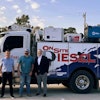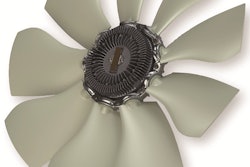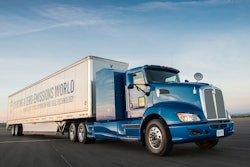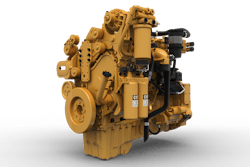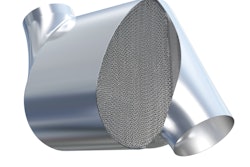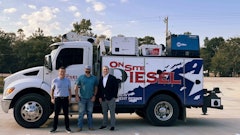Omnitek Engineering Corp. announces it has received a contract to develop a heavy-duty 12-L propane engine for Class 8 trucks and certify the engine to EURO 6 emissions standards.
The 12-L 360 hp propane (LPG) engine complements the company’s current development of a 13-L 450 hp heavy-duty natural gas engine for Class 8 truck applications to meet EURO 6 emissions. The propane engine is targeted for regions with no access to natural gas — particularly European countries with mature fueling infrastructure for propane due to decades of LPG utilization in passenger vehicles, making Autogas, as it is commonly known, readily available.
“The ability of Omnitek’s technology to achieve EURO 6 emissions certification standards, which is a competitive advantage and not easily achieved, has not gone unnoticed in Europe. In addition, the availability of a 13-L 450 hp EURO 6 heavy-duty natural gas engine and a 12-L 360 hp propane Autogas engine, should further accelerate deployment of clean eco-friendly, heavy-duty trucks in Europe, as well as other world regions that require Euro 6 certification,” says Werner Funk, President and Chief Executive Officer of Omnitek Engineering Corp.
Funk highlighted the low-cost and clean-burning benefits of natural gas and propane — particularly as oil prices begin to increase and emissions policies address the landmark 200-nation Paris Agreement on Climate Change. “CO2, NOx and black carbon emissions from diesel engines, potent greenhouse gas (GHG) emissions, are abated when utilizing natural gas or propane, and our technology offers countries around the globe a viable and proven solution,” he says.
He emphasizes that even with relatively low oil prices, the company is still in active discussions with several large fleet operators for new and/or expanded conversion programs. Funk adds he anticipates certain key project expanding soon, as fleet managers complete analyzing the data from on-road evaluation programs and focus on the economic benefits of a payback period of less than 2 years for diesel-to-natural gas engine conversions, especially as diesel prices have increased recently. “In addition, the environmental benefits and related compliance issues with meeting emissions mandates are important catalysts for fleet conversions and we look forward to further accelerating the utilization of natural gas and propane,” Funk says.



